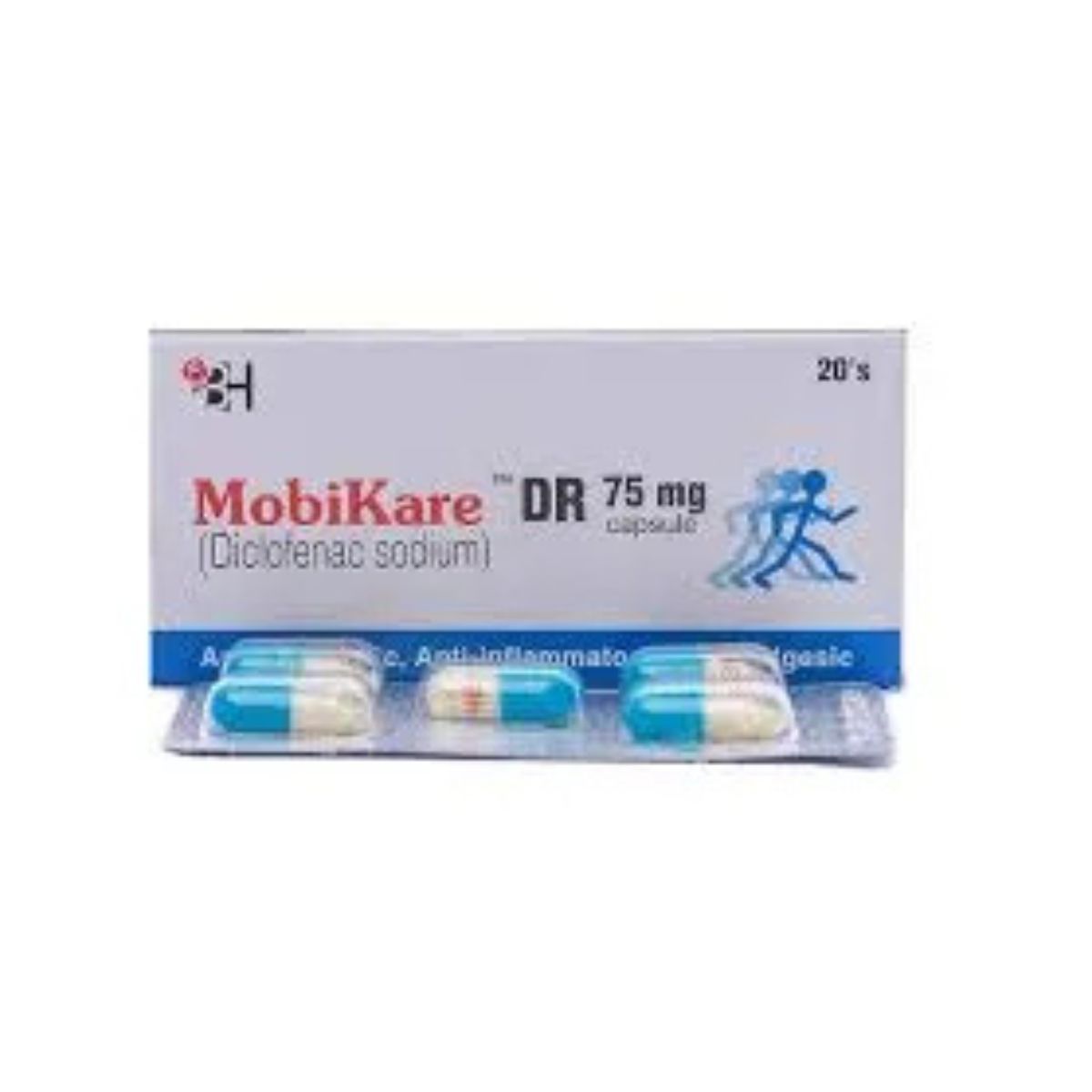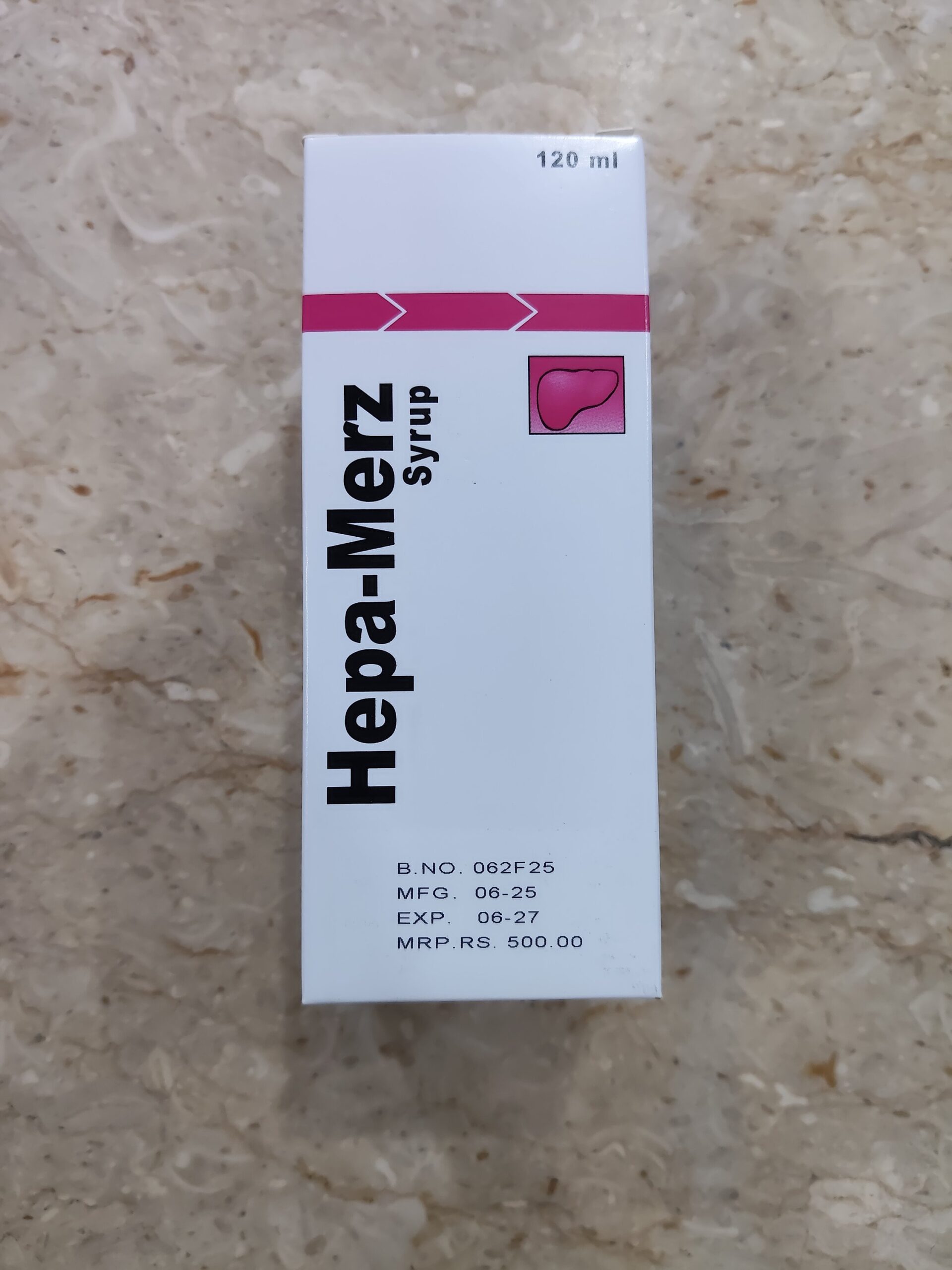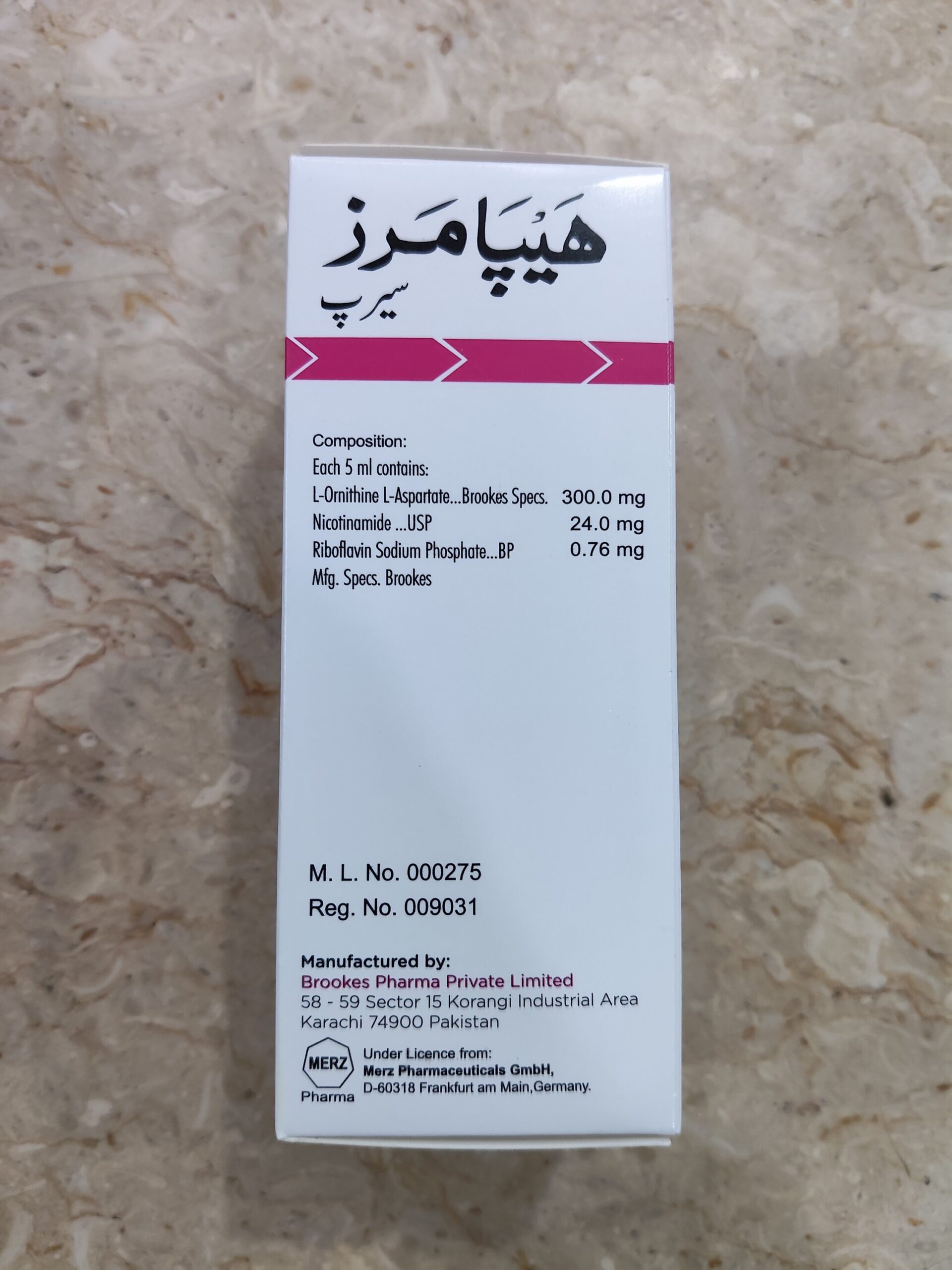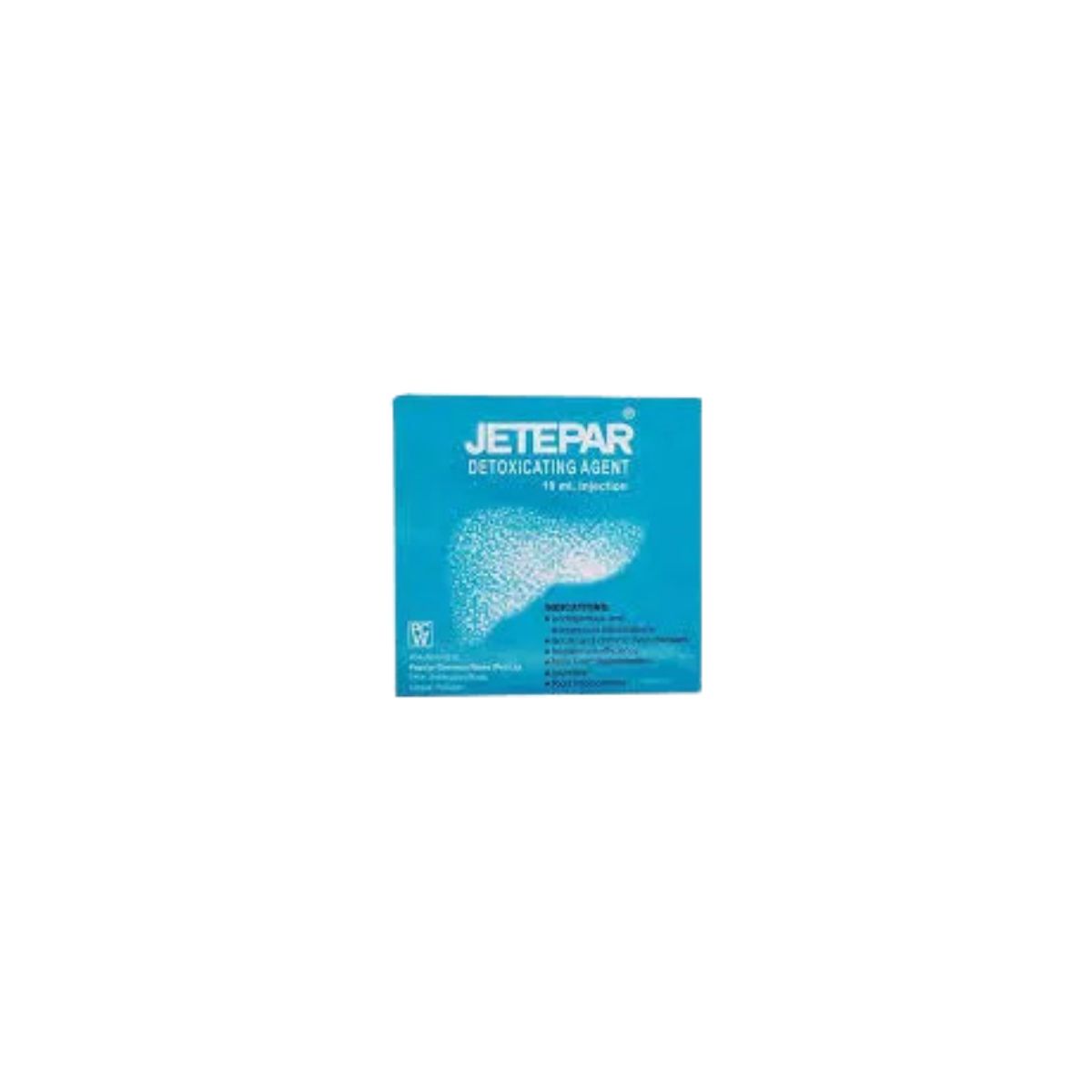Description
Description
Diclofenac Sodium 75mg capsules exert their anti-inflammatory, analgesic, and antipyretic effects primarily through inhibition of cyclooxygenase (COX) enzymes. It selectively inhibits COX-2, which is responsible for the production of prostaglandins that mediate pain, inflammation, and fever. By blocking COX-2, diclofenac reduces the formation of these prostaglandins, thereby alleviating pain, reducing inflammation, and controlling fever. This mechanism of action allows diclofenac to effectively target the pathways involved in pain and inflammation without directly affecting other physiological processes.
Ingredients
Diclofenac Sodium 75mg
Drug Class
Non-steroidal anti-inflammatory drug (NSAID)
Dosage Form
Capsule
Uses
The following are the uses of Diclofenac Sodium 75mg Capsule:
Used for relieving acute pain and inflammation, such as in dental pain or post-surgery recovery.
Used for managing chronic conditions like arthritis and ankylosing spondylitis to reduce pain and stiffness.
Used for treating severe migraines and headaches by reducing inflammation and associated pain.
Used for easing menstrual cramps and pain, providing temporary relief during menstrual periods.
Used for reducing fever and discomfort caused by flu or other viral infections.
Used for alleviating pain and swelling in soft tissue injuries, strains, and sprains.
Used for controlling gout symptoms, helping to reduce the pain and inflammation of acute gout attacks.
Dosage
Tailoring Treatment for Optimal Health, Prescribed Medication Dosage is:
For arthritis- 50 mg to 100 mg once or twice per day (or take the recommended dose as prescribed by your doctor)
For mild to moderate pain- 50 mg to 150 mg daily in divided doses
For severe pain- 150 mg to 200 mg daily in divided doses
In case of Overdose
In the case of an overdose of Diclofenac Sodium 75mg Capsules, immediate medical attention is necessary. Symptoms may include nausea, vomiting, stomach pain, dizziness, and in severe cases, seizures or loss of consciousness. Promptly seek emergency medical care, as overdoses can lead to serious health complications. Quick action is vital, as medical professionals can provide the necessary treatment to manage the overdose and prevent potential long-term damage to the body. It is important to act swiftly and not delay seeking help.
Missed Dose
In the case of a missed dose of Diclofenac Sodium 75mg Capsule, it is important to take the medication as soon as you remember. However, if it is almost time for your next dose, skip the missed dose and continue with your regular dosing schedule. Do not double the dose to make up for a missed one. If you miss multiple doses, contact your healthcare provider for guidance, as they may advise you to restart the medication or provide specific instructions for catching up on missed doses. It is essential to maintain a consistent dosing routine for optimal pain management.
How To Use
To take Diclofenac Sodium 75mg Capsule, swallow the capsule whole with a full glass of water, preferably with or after food, as directed by your healthcare professional, typically once or twice a day, and avoid crushing, chewing, or breaking the capsule to maintain its effectiveness.
When Not to Use
Here are the conditions or situations when Diclofenac Sodium 75mg Capsule should not be taken:
Avoid if you have a known allergy or hypersensitivity to Diclofenac or other related non-steroidal anti-inflammatory drugs (NSAIDs).
Do not use if you have active gastrointestinal bleeding or a history of gastrointestinal bleeding.
Contraindicated in individuals with severe heart failure or heart disease.
Should not be used by patients with severe kidney or liver impairment.
Not suitable for patients with a history of asthma or allergic reactions triggered by Aspirin or other NSAIDs.
Avoid if you have a bleeding disorder or are taking medications that increase the risk of bleeding.
Do not take if you have recently undergone coronary artery bypass graft (CABG) surgery.
Contraindicated in individuals with severe dehydration or low fluid volume in the body.
Side Effects
The side effects of Diclofenac Sodium 75mg Capsule may include:
Stomach pain or discomfort
Nausea and vomiting
Diarrhea or constipation
Dizziness or lightheadedness
Headache
Skin rash or itching
Increased blood pressure
Gastrointestinal bleeding
Precautions & Warnings
Following are the precautions and warnings for Diclofenac Sodium 75mg Capsule:
This medication should be used with caution in elderly patients as they may be more susceptible to its side effects.
Diclofenac can increase the risk of serious cardiovascular events, including heart attack and stroke. Patients with cardiovascular disease or risk factors should be closely monitored.
Long-term use of Diclofenac may lead to gastrointestinal bleeding, ulceration, or perforation. Patients with a history of gastrointestinal issues should be regularly assessed.
It may cause liver enzyme elevations. Monitoring liver function is essential, especially during long-term treatment.
Avoid using Diclofenac if you have a history of allergic reactions to NSAIDs, as it may trigger severe allergic responses.
This medication is not recommended during pregnancy, especially in the third trimester, as it may cause complications.
Consult a healthcare professional before using Diclofenac if you are breastfeeding, as it can pass into breast milk and potentially affect the infant.
Drug Interactions
Following are the drug interactions for Diclofenac Sodium 75mg Capsule:
Aspirin or other NSAIDs (e.g., ibuprofen, naproxen) may increase the risk of gastrointestinal bleeding and ulcers when taken with Diclofenac.
Lithium and Diclofenac can lead to increased lithium levels, potentially causing lithium toxicity.
Methotrexate levels may be elevated, increasing its toxicity when used with Diclofenac.
ACE inhibitors and ARBs (angiotensin receptor blockers) may have reduced antihypertensive effects when combined with Diclofenac.
Diuretics like furosemide can have decreased diuretic effects when used with Diclofenac.
Anticoagulants (e.g., warfarin) may have enhanced anticoagulant effects, increasing the risk of bleeding.
Corticosteroids and Diclofenac may increase the risk of gastrointestinal bleeding and ulceration.
Cyclosporine levels may be elevated, potentially leading to increased toxicity.
Food Interactions
Following are the food interactions to be aware of when taking Diclofenac Sodium 75mg Capsules:
Avoid excessive alcohol consumption as it can increase the risk of gastrointestinal bleeding and liver problems.
Grapefruit and grapefruit juice should be consumed with caution as they may interfere with the metabolism of Diclofenac, potentially increasing its levels in the body.
Limit the intake of foods high in potassium, such as bananas, oranges, and tomatoes, as Diclofenac can affect potassium levels.
Avoid salty foods and high-sodium diets, as Diclofenac can lead to sodium retention.
Be cautious with caffeine-rich foods and beverages like coffee and tea, as they can increase the risk of caffeine sensitivity.
Stay hydrated and maintain a balanced diet to minimize potential side effects.
Avoid fatty meals as they can affect the absorption of Diclofenac.
Consult your healthcare provider for specific dietary recommendations and adjustments during treatment.
Storage/Disposal
Diclofenac Sodium 75mg Capsules should be stored in a cool and dry place, preferably at room temperature (below 25°C). It is crucial to keep the capsules in their original packaging, ensuring the container is tightly sealed to maintain their integrity. Avoid exposure to direct sunlight, excessive heat, or moisture, as these conditions can degrade the medication. When disposing of unused or expired capsules, do not throw them in the trash or flush them down the toilet. Instead, follow local guidelines for pharmaceutical waste disposal, or consult your pharmacist for advice on safe and environmentally friendly disposal methods. Keep the medication out of the reach of children and pets to prevent accidental consumption.
Quick Tips, if any
Following are the quick tips for Diclofenac Sodium 75mg Capsule:
Consult a doctor for prescription and dosage instructions.
Swallow the capsule whole with water; do not crush or chew.
Take with or after food to prevent stomach irritation.
Avoid alcohol consumption as it may increase the risk of stomach bleeding.
Inform your doctor about any allergies or medical conditions.
Do not take if you have a history of asthma or allergic reactions to NSAIDs.
Store in a cool, dry place, away from direct sunlight.
Keep the medication out of reach of children.
Laboratory Screening
When taking Diclofenac Sodium 75mg, it is crucial to disclose all the medications you are currently taking and any allergies you may have to your doctor. There are several potential drug interactions and side effects associated with Diclofenac Sodium, including acute asthmatic symptoms, which may require a lung function test (Pulmonary Function Test • PFT) and a lung consultation with a pulmonologist. Regular liver function tests and monitoring of serum potassium levels are also recommended as side effects that may require intervention. Laboratory tests are in place to help monitor and detect potential health complications caused by long-term use of Diclofenac Sodium 75mg. These tests identify any abnormalities in your body’s functioning, and help doctors intervene accordingly. Consulting with a medical professional is vital to obtaining personalized advice on which laboratory tests are necessary while taking Diclofenac Sodium 75mg. Additional tests may be required depending on a person’s unique medical history, age, and other factors.







Reviews
There are no reviews yet.